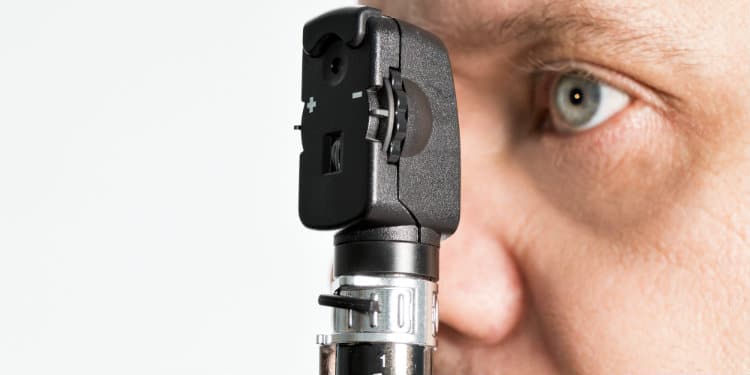Taking Care of Your Eyes with Diabetes
Receiving a diagnosis of diabetes can feel like a real turning point in many lives. It often signifies changes in lifestyle, routines, and the way one looks at daily life.
What it isn’t is a life sentence. People can still do so many of the things they love while managing diabetes. It’s just a matter of being more careful with certain choices—especially when it can have effects on your body.
Diabetes and eye care might not sound like something you commonly hear together, but they are importantly linked. The effects of diabetes can have negative consequences for our sight and general eye health over time.
The good news is that, when you start taking good diabetic eye care into your own hands, you can help slow the progression of problems or even prevent them altogether. Another big bonus is that many of the things you can do to help your eyes will help the rest of you, too!
What can diabetes do to your eyes?
Before heading into some diabetic eye care tips, it makes sense to know what you’re fighting for.
Fluctuating blood sugar levels can have damaging effects on blood vessels throughout your body. Unfortunately, you have many tiny blood vessels in the back of your eye that can be particularly vulnerable. These vessels, in the area of the eye called the retina, have the important task of supplying oxygen and much-needed nutrients to the nerve cells.
Those nerves have the task of transmitting signals from your eyes to your brain, effectively letting you see. If these nerves start to struggle and die due to not receiving enough of what they need to live, your sight begins to diminish, and permanent blind spots develop. This condition is known as diabetic retinopathy.
Diabetes can also contribute to other eye conditions, including glaucoma and cataracts. The likelihood of these problems increases with age, so getting an early start on your diabetic eye care can make for a much more favorable situation later on in life.

Tips for Diabetic Eye Care
The way you manage your diabetes and lifestyle can have a big influence on the long-term health of your eyes. Being proactive and considerate toward your well-being is the key not only to better eyes, but better well-being as a whole.
Keep a tight rein on your blood sugar levels
According to the American Diabetes Association, a study that compared people following standard diabetes treatment to those who consistently kept their blood sugar levels close to normal found that the former were diagnosed with retinopathy four times as often.
In those who were already diagnosed with retinopathy, those who kept their blood sugar under close control had their condition progress only half as often as those who did not. Sometimes it might not feel like you have a lot of control over things when you have diabetes. When it comes to your eyes, though, you very much do.
Quit smoking
You might have had everything else under the sun telling you to stop smoking already, but you are putting your eyes at a severe disadvantage if you don’t stop.
Whatever damage diabetes does to your circulatory system, smoking will only make worse. Smoking is linked to narrowing of the blood vessels, and a reduction in the amount of oxygen that can be carried by the blood. It can be a death sentence to the nerves in your eyes (not to mention elsewhere in your body).
As soon as you quit smoking, your condition begins to improve. It is worth stopping at whatever cost.
Manage your blood pressure and cholesterol
Again, this tip emphasizes the importance of keeping healthy blood flow to your eyes. High blood pressure can lead to more rapid deterioration of your eye health, while cholesterol can interfere with blood flow to all areas of the body.
Both diet and exercise are important factors in managing these conditions, and fitness should be a primary goal in your general diabetic management plan. If it isn’t, speak with your primary care physician to learn how to develop an effective plan that will be fun enough to stick to.

Keep good watch of your eyes
Given the risks of diabetes to your eyes, it is important to take note of any potential problems you might experience and notify us right away.
Such symptoms include:
- Blurry vision
- Double vision
- A feeling of pressure within the eye
- Pain in one or both eyes
- Straight lines not looking straight
- Trouble seeing objects in your peripheral vision
Checking these problems out quickly can mark the difference between worsening eyes and good management. It is also vital to have an in-depth exam at least once per year, depending on the condition of your eyes. A standard “glasses” exam is not going to cut it; we will need to dilate your eyes or use other tools to get a close look at your retina.
A good plan and a good outlook can make for a bright future for your eyes. It all starts with getting a base check-up and some starting advice from the doctors at Sight Eye Clinic. Schedule an appointment with Dr. Leuschner, Dr. Huffman, Dr. Bast, or Dr. Wustman by calling us at (616) 772-2020. You can also reach us via our online contact form.
